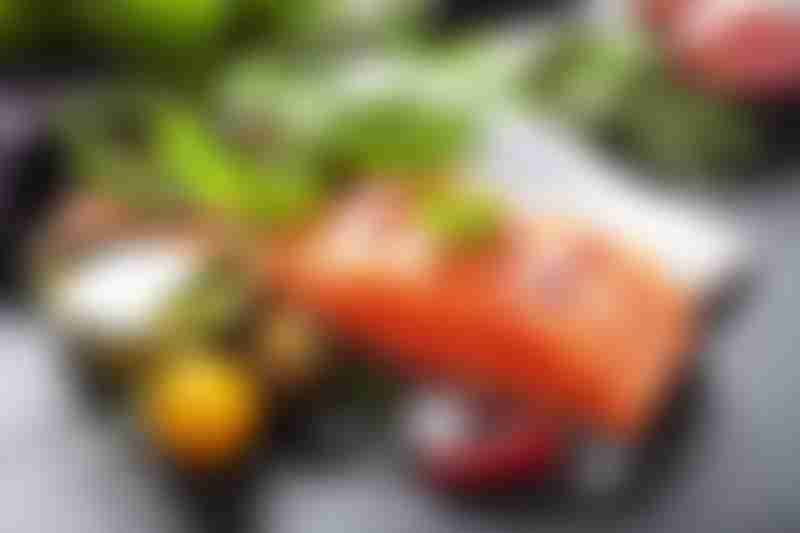Food That Lower Colorectal Cancer Risk

Source: Shutterstock.
Colorectal cancer, if not detected and treated early, can become life threatening. Some of us are at a higher risk; others, not so much. However, if you were told that, with some effort, you can lower your risk of developing colorectal cancer, would you do it?
Like the oft-repeated adage that ‘prevention is better than cure’, alleviating the risks of developing colorectal cancer can help you avoid a more difficult life in the future. Of the different risk factors, a poor diet is one of the top causes of colorectal cancer. On one hand, there are foods that increase your risk of colorectal cancer. On the other hand, eating more of other types of food can reduce the chances of developing colorectal cancer.
You may feel doubtful that changing your diet alone will have such a great impact on your chances of developing colorectal cancer. While it is true that it does not guarantee zero risk, an improved diet also lowers your risk of other chronic diseases such as diabetes and obesity, both of which are associated with higher colorectal cancer risk.
If you are uncertain about how to change your diet, or if doing so really works, this overview will give you a better idea of the food groups to eat more of and how they help to reduce your colorectal cancer risk.
What’s in your diet?
To begin with, having an awareness of the types of food that can increase your colorectal cancer risk will help in adjusting your diet. In fact, just by reducing your consumption of processed carbohydrates, red and processed meat alone will lower your cancer risk. However, how much more your risk is reduced thereafter will then depend on the other food you eat.
In a nutshell, a diet that is high in fruits, vegetables, whole grains, beans, fish and dairy will help lower your colorectal cancer risk, and may even have protective effects against cancer. In the next sections, we explore the different components found in each food type and how they contribute to lower cancer risk.
Food high in dietary fiber

Fruits and vegetables are abundant sources of dietary fiber.
Source: Shutterstock.
Found in: Fruits, vegetables, whole grains, beans
Dietary fiber, sometimes referred to as roughage, is a carbohydrate found in plants that our human bodies cannot digest. While other carbohydrates can be broken down into simple sugars, fiber remains undigested as it passes through our digestive tract and is removed from the body with other waste material in the form of stool.
Dietary fiber can be classified into soluble and insoluble types, and both forms are associated with reduced colorectal cancer risk.
Improves bowel movement
Dietary fiber can promote bowel movements and decrease the transit time of waste material through the colon, reducing the contact time between carcinogens and the lining of the colon. This reduces the exposure of the colonic epithelium to carcinogens, decreasing the risk of colorectal cancer. Additionally, insoluble fiber can act as a bulking agent and prevent constipation, which has been linked to an increased risk of colorectal cancer.
Regulates gut microbiota
Dietary fiber has been shown to modulate the gut microbiota, that is, the microorganisms found in our digestive system, increasing the abundance of beneficial bacteria such as Bifidobacterium and Lactobacillus, and decreasing the abundance of potentially harmful bacteria such as Clostridium perfringens and Fusobacterium nucleatum. These changes in gut microbiota composition may contribute to the protective effect of dietary fiber against colorectal cancer.
Short-chain fatty acids (SCFAs)
The fermentation of dietary fiber by gut bacteria produces SCFAs, such as butyrate, propionate, and acetate. These SCFAs have been shown to have anti-carcinogenic effects, including inducing cell differentiation, inhibiting cell proliferation, and inducing apoptosis. Butyrate has also been shown to have anti-inflammatory effects, which may contribute to its protective effect against colorectal cancer.
Food rich in vitamins and minerals

Whole grain foods are high in vitamins and minerals.
Source: Shutterstock.
Found in: Fruits, vegetables, whole grains, fish, dairy
Fruits, vegetables, and whole grains are plant-based sources rich in vitamins and minerals, while fish as a red meat alternative is also high in vitamins, minerals and omega-3 fatty acids. Compared to dietary fiber, the amount of vitamins and minerals we consume in a day is significantly lower. Nonetheless, these are essential compounds for cellular processes and also play a role in reducing colorectal cancer risk.
Vitamins
Vitamin D, a fat-soluble vitamin found in some dairy products and fish, plays a role in reducing colorectal cancer risk. Together with calcium, vitamin D regulates several cellular processes, including cell differentiation and proliferation, inducing apoptosis, or programmed cell death, and has displayed anticancer effects such as suppressing angiogenesis (blood vessel formation) and inhibiting metastasis. Vitamin D may also improve gut health by regulating the immune system and reducing inflammation, which are important factors in colorectal cancer development.
Vitamin C, also known as ascorbic acid, is a well-known antioxidant that is not only easily found in various fruits and vegetables, but is also sold in tablet form. While the antioxidative property of vitamin C helps prevent cell and DNA damage, it has been shown to have the opposite effect on cancer cells with the KRAS and BRAF gene mutations in laboratory settings. In oxygen-rich settings, ascorbic is oxidized into dehydroascorbic acid (DHA), which is carried into cancer cells at higher rates than normal cells. DHA is an oxidative species, and when the cancer attempts to neutralize DHA, the process inadvertently results in oxidative stress and causes the cell to die.
Minerals

Source: Shutterstock.
A well-established hypothesis is that calcium, a mineral found in high amounts in dairy products, may play a role in reducing colorectal cancer risk. Calcium has been shown to have several anticancer properties, such as inhibiting cell proliferation and inducing apoptosis in cancer cells. Calcium may also bind to bile acids, which are produced in the liver and are known to promote colon cancer, and thus reduce their harmful effects.
Several epidemiological studies have supported the association between calcium intake and colorectal cancer risk. A meta-analysis of 15 prospective cohort studies found that high calcium intake was associated with a 13% reduction in colorectal cancer risk. A randomized controlled trial also showed that calcium supplementation reduced the risk of adenomas, precursors to colorectal cancer, in individuals with a history of these lesions.
Other minerals like zinc, selenium and magnesium that are commonly found in whole grains have also been linked with a lower colorectal cancer risk, though the exact mechanism remains unclear.
Food high in phytochemicals

Fruit and vegetables are rich in phytochemicals, including flavonoids and carotenoids.
Source: Shutterstock.
Found in: Fruits, vegetables, whole grains, beans
Phytochemicals, simply put, are chemicals produced by plants. These are biologically active compounds that are produced by plants to prevent infection by fungi, bacteria and viruses. To humans, phytochemicals are low in toxicity and confer different health benefits, and also have anti-carcinogenic properties.
Antioxidative properties
For instance, many phytochemicals act as antioxidants, neutralizing free radicals that can cause cellular damage by rupturing cell membranes and damaging DNA, thereby increasing the risk of cancer. Phytochemicals can also regulate gene expression, preventing the growth and spread of cancer cells.
Some of the commonly found phytochemicals in a plant-based diet include flavonoids, carotenoids, glucosinolates, lignans, and phenolic acids.
Omega-3 polyunsaturated fatty acids (PUFAs)

Fish such as salmon is rich in omega-3.
Source: Shutterstock.
Found in: Fish
Fish is a rich source of n-3 PUFAs including eicosapentaenoic acid (EPA) and docosahexaenoic acid (DHA). These long-chain fatty acids have been shown to have various health benefits, such as reducing inflammation, improving lipid metabolism, and enhancing cognitive function.
In the context of colorectal cancer prevention, n-3 PUFA may exert anticancer effects by modulating multiple signaling pathways involved in cell growth, apoptosis, angiogenesis, and inflammation.
Does this mean you have to give up red meat?
It may seem that the only food you can eat to lower your risk of colorectal cancer are mostly plant based, but does that also mean having to give up on eating red meat forever?
While it may sound cliché, eating red meat occasionally will not drastically increase your colorectal cancer risk as long as you eat in moderation. Particularly if you are at high risk of other chronic diseases such as diabetes and obesity, eating less processed food and meat is essential in maintaining a healthy lifestyle. On the other hand, eating more fruits, vegetables, and fish have not been shown to have adverse effects on health.
It will take some adjusting and getting used to, but with some effort and creativity, switching your diet to reduce your risk of not only colorectal cancer but also other chronic diseases is absolutely possible.